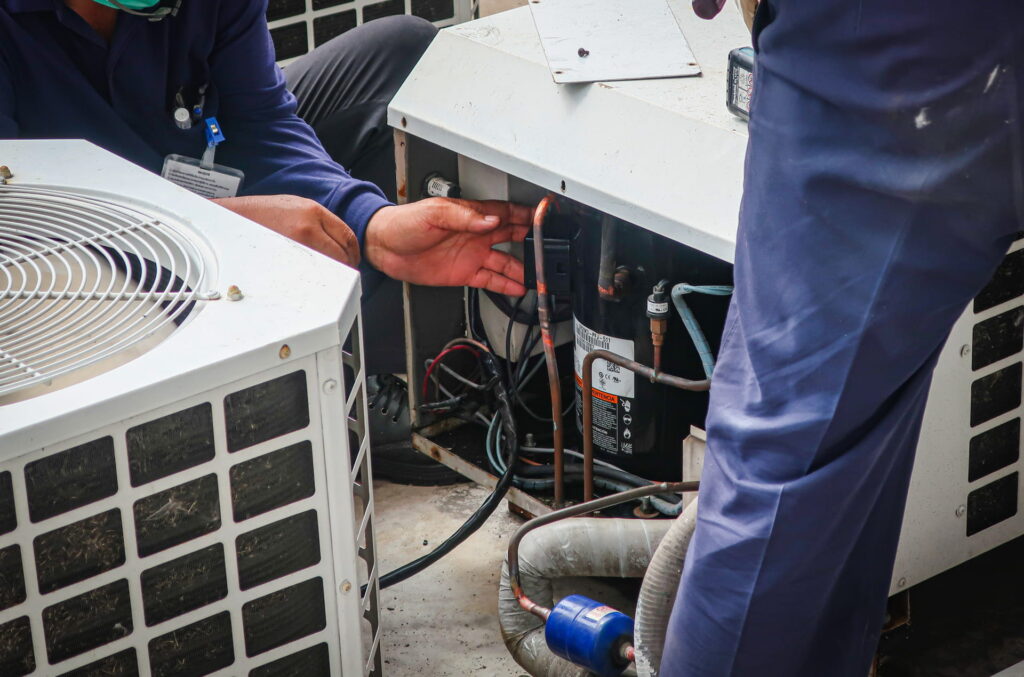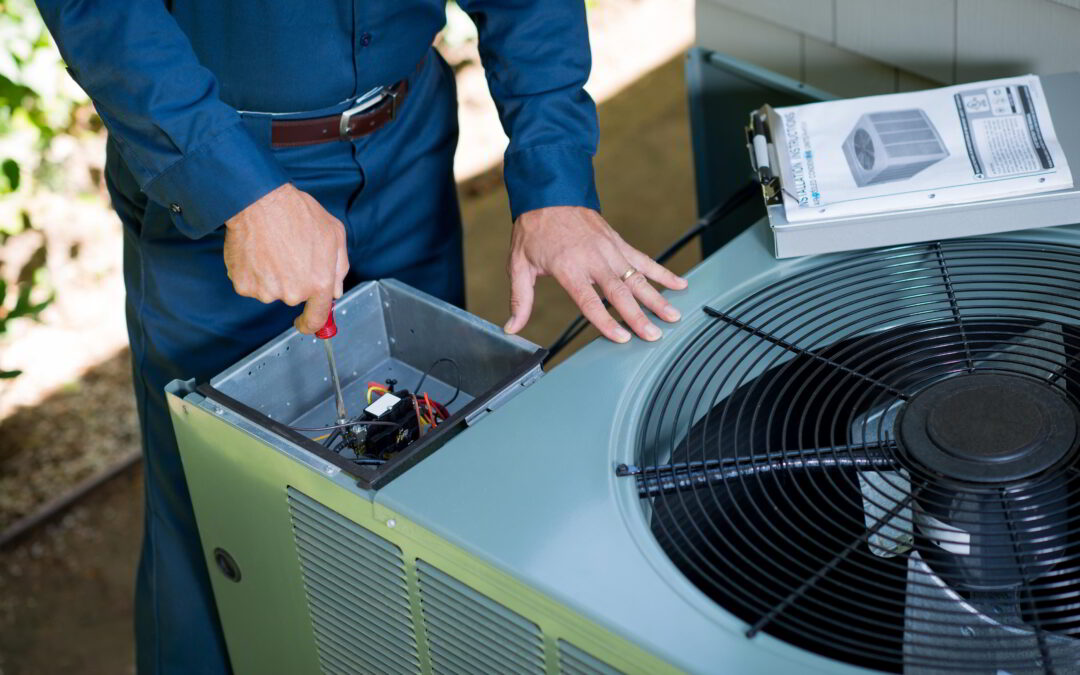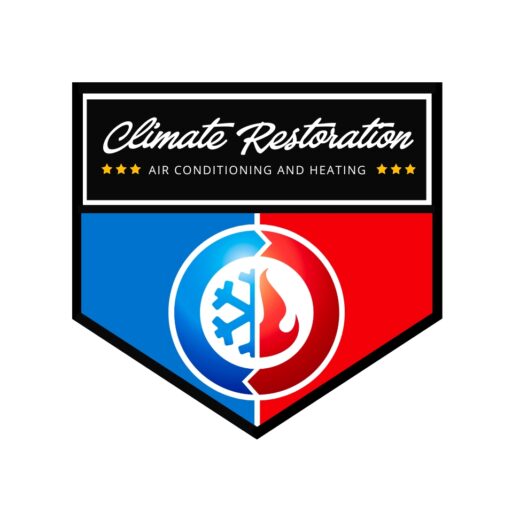Before we dive into the “AC repair vs. replace” debate, let’s take a quick look at some telltale signs that your air conditioner might be struggling. Recognizing these issues early can save you from bigger headaches down the road. As an experienced HVAC technician, I’m here to guide you through this decision-making process and help you figure out what’s best for your air conditioning needs and repair on a budget.
Poor Cooling Performance
Are you finding it harder to keep your home cool even when your AC is cranked up to the max? This is more than just an inconvenience; it’s a clear sign that your AC unit needs attention. Inefficient cooling can be caused by various issues, such as clogged filters, low refrigerant levels, or a malfunctioning compressor.
Pro Tip: A well-maintained AC should keep your home consistently cool throughout the hottest summer days. If you notice inconsistent cooling, don’t ignore this red flag.
Strange Noises
If your AC unit has suddenly transformed into a percussion instrument, it’s not a performance you should enjoy. Banging, clanking, or squealing noises are cries for help from your cooling system. These noises can indicate problems with the fan motor, loose components, or even issues with the compressor.
Pro Tip: Ignoring strange noises can lead to more significant and costly problems down the road. It’s best to address them promptly.
Frequent AC Repairs
Has your AC become your new high-maintenance friend, constantly needing repairs? Frequent breakdowns can be frustrating and expensive. If you find yourself calling the technician every few weeks, it might be time to consider a more long-term solution.
Pro Tip: Keep track of how often you’ve called for repairs this year. If it’s becoming a frequent occurrence, it’s a sign that your AC may be on its last legs.
Rising Energy Bills
Have you noticed your energy bill slowly creeping up, even though you haven’t changed your cooling habits? An inefficient AC can consume a significant amount of electricity, which not only hurts your wallet but also puts unnecessary strain on the environment.
Pro Tip: To gauge the impact, compare your recent energy bills with those from the same period last year. If you’re consistently paying more for the same usage, your AC may be to blame.

The Impact of Age on AC Efficiency
Now, let’s talk about age. Just like us, AC units get less efficient as they get older. If your AC has been keeping your home cool for over a decade, it might be showing signs of fatigue. As AC units age, their components wear out, making them less efficient at cooling your home.
Pro Tip: If your AC is approaching or has exceeded its expected lifespan, it might be more cost-effective in the long run to invest in a newer, more efficient unit.
AC Repair: Pros and Cons
Let’s start by weighing the pros and cons of repairing your existing AC unit.
Benefits of AC Repair
Cost-Effective in the Short Term
One significant advantage of repairing your AC is that it’s often more budget-friendly in the short term. Fixing a specific issue, like a faulty compressor or a refrigerant leak, can be less expensive than a full replacement. If you’re facing a minor problem, repairing it might make more financial sense.
Pro Tip: If your AC is relatively young and the repair cost is reasonable, it might make financial sense to go for it. A professional assessment can help you make this determination.
Maintains Your Investment
Your air conditioner was an investment in your home’s comfort, and repairing it helps you protect that investment. A well-maintained AC can last for many years beyond its warranty, providing you with continued comfort and reliability.
Pro Tip: Regular maintenance can extend the lifespan of your AC, so don’t skimp on it. A well-cared-for AC is less likely to develop major issues.
Faster Solution
Professional air conditioning repair is often a quicker solution than replacing it. If you can’t bear the thought of sweltering in the summer heat or dealing with a broken AC during the winter, this might be a significant selling point for repair.
Pro Tip: Quick repairs can be a lifesaver during a scorching summer or a chilly winter. It’s essential to factor in your comfort and the season when making your decision.
Drawbacks of AC Repair
Potential for Frequent Breakdowns
While repairing might seem like a cost-effective solution, it’s essential to remember that older AC units are more likely to develop new problems. This could lead to frequent repair bills piling up over time.
Pro Tip: Consider the age and overall condition of your AC before committing to repairs. If it’s nearing the end of its lifespan, you might be better off with a replacement.
Efficiency May Not Be Fully Restored
Sometimes, even after AC repairs, your AC might not return to its peak efficiency. This means you’ll still face higher energy bills than you would with a newer, more efficient unit. Additionally, an inefficient AC may struggle to keep your home as comfortable as you’d like.
Pro Tip: Factor in potential energy savings when deciding. Over time, a more efficient unit can offset the initial cost of replacement.
Limited Lifespan Extension
Proper AC repair can extend its lifespan, but it’s a temporary fix. At some point, you’ll likely need to replace it anyway. This is especially true if your AC is already quite old and has had multiple repairs.
Pro Tip: Consider how much time you realistically expect to get out of the air conditioning repair. If you’re planning to stay in your current home for a while, it might be worth exploring the long-term benefits of a replacement.

AC Replacement: Pros and Cons
Now, let’s explore the benefits and drawbacks of replacing your AC unit.
Benefits of Replacing Your AC
Improved Energy Efficiency
Newer air conditioners are built with energy efficiency in mind. Replacing your old unit with a modern one can lead to significant savings on your energy bills. In fact, modern units are designed to meet higher energy efficiency standards, meaning they require less energy to cool your home effectively.
Pro Tip: Look for units with high SEER (Seasonal Energy Efficiency Ratio) ratings for maximum efficiency. Investing in an energy-efficient model can result in considerable long-term savings.
Enhanced Comfort
Modern AC units often come with advanced features like programmable thermostats, variable-speed fans, and improved humidity control. This means better comfort and control over your indoor climate. Say goodbye to those hot and cold spots in your home!
Pro Tip: Enjoy a more comfortable home with a new AC system that offers precise temperature control and improved humidity management.
Long-Term Savings
Although the upfront cost of a new AC unit can be substantial, you’ll likely save money in the long run due to lower energy bills and fewer air conditioning repair expenses. When you consider the extended lifespan and reduced maintenance requirements of a new unit, the investment can pay off handsomely.
Pro Tip: Don’t just focus on the initial cost; consider the long-term financial benefits of a replacement when making your decision.
Drawbacks of Replacing Your AC
Higher Upfront Costs
The most significant drawback of AC replacement is the initial cost. Buying a new unit and having it installed can be a substantial investment. However, it’s important to view this cost in the context of long-term savings and improved comfort.
Pro Tip: Explore financing options or look for seasonal


